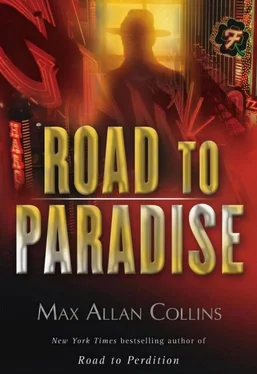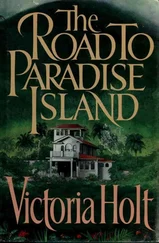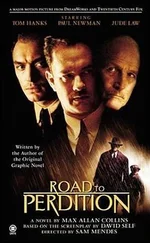Some stations had diners still open, but he didn’t eat, other than a Snickers bar about two hours in; and he drank Cokes, their caffeine helping out, and would stop and pee alongside the road, feeling weirdly serene as he sent a yellow arc into the ivory landscape under a vast sky of stars.
The third roadside pee break, he had his first bad moment. He looked up at the sky and said, “She was right, wasn’t she? Either you’re not fucking up there at all... Or worse, you are up there and we’re just some goddamn ant farm you lost interest in! Fuck you!”
He yelled all of this, and it sounded hollow in the night, not echoing exactly, more floating.
Despite the caffeine, he was getting tired, and about four hours in, the monotony stopped helping and started hurting. Suddenly he was weaving and ran off on the soft shoulder and woke himself up. He reached into the cooler on the otherwise empty rider’s bucket seat, and got another can of Coke going. He turned the air conditioner up until the car’s interior was damn near freezing. Then he stuffed a random four-track into the tape player, and Johnny Mathis came on.
“Chances are,” Mathis sang, and Michael remembered how much Pat liked the song — wasn’t her favorite or anything, just a song that when it came on, she’d always say, “That’s so pretty,” and he began to cry.
Losing control of himself and the vehicle, he had to pull alongside the road and get out, and he knelt on the sandy desert floor in the big empty cathedral of the night, cacti here and there like prickly votive candles. He wasn’t praying. He was weeping.
Ten minutes later he got shakily to his feet, pouting like a kid who suffered an unfair parental spanking, flashed the sky a middle finger, and again got behind the wheel.
The idea had been to tough out the whole twelve or thirteen hours, but by just after dawn, when the Lincoln rolled through suburban Henderson into Vegas, Michael had decided he needed a new plan.
His route didn’t take him to his one-time home away from home, the Strip, where the Vegas of the Sands and Stardust and Sahara was in the process of displacement by the overblown-themed likes of Circus Circus, Caesar’s Palace, and the MGM Grand. Howard Hughes had talked of Vegas becoming a “family” town (not meaning “family” in the Syndicate sense, either), a concept that longtime casino manager Michael knew had great potential.
In some respects the Cal-Neva had anticipated that, with its genuine resort-in-the-mountains attributes, boating, hiking, horseback riding; yet a certain nostalgic fondness for the Rat Pack glory days lingered in Michael even now, perhaps because on his periodic Vegas stints, he and Pat had shared laughter and love in this neon paradise, hobnobbing with celebrities, enjoying fine food and the lush life.
Near downtown, practically in the shadow of that leering electric cowboy Vegas Vic, he pulled into the Lucky Seven Motel, one of those space-age two-story courtyard affairs with glass flecks in the cement serving as glitz.
The young man at the desk was skinny with bored brown eyes and an untrimmed mustache and shaggy dark hair, and seemed less than thrilled with the short-sleeve white shirt and snap-on blue-and-red striped necktie he was required to wear. “Stairway to Heaven” was playing a little too loud on a cheap radio behind him.
Michael spoke up, requesting a room on the first level as far away from the street as possible, and the clerk complied, possibly because that was the easiest thing to do. After signing in as John Jones, the former Michael Smith paid the twenty-five dollars in advance, and said to the clerk, “I need a nine a.m. wake-up call.”
The clerk frowned in thought, which was an obvious inconvenience. “Tonight you mean?”
“No — a.m.”
“Oh, you mean tomorrow morning?”
“ This morning.”
The frown deepened. “Three hours from now?”
“Right. Will you still be on duty?”
“Yeah, just came on. So what?”
Michael summoned a smile for the sullen young man. “Because if I get that wake-up call, nice and prompt? I’ll be another twenty-five bucks grateful.”
The clerk brightened. “No problem, Mr. Jones!”
Locked inside the room, curtains drawn tight, air conditioner up, Michael placed the .45 on his nightstand, stripped to his underwear, slipped between cool sheets, and was asleep in seconds.
He dreamed he was driving.
Dreamed he was back on the endless highway through the desert, following the ribbon of concrete under a beautiful star-flung sky and a moon-bleached landscape. Pat was next to him, smiling over at him, wearing that lacy white dress from their evening at Vincent’s.
As dreams went, it wasn’t a bad one, other than his mind providing him with more of the same experience that had sent him into this motel room; a kind of delirium accompanied it, giving him an awareness of being in a dream but no power over that dream. Still, having Pat beside him, not talking, just smiling over at him, occasionally touching his shoulder or leg or hand, Johnny Mathis singing a nonexistent love song on the four-track, was comforting.
Then he glanced over at her, and she was someone else, another woman he’d loved once, a long time ago. They had killed Estelle in a terrible way, tortured her and burned her to death, and he had found her body, when he was just a kid in his early twenties who had admittedly seen horrible things in war but nothing to compare to a beautiful woman tortured and burned . Only in the dream Estelle was pristine in her loveliness, blonde and green-eyed with a ’40s hairstyle and makeup and a blue gown with sequins on the bosom; and then she was Pat in the ’40s hairstyle and makeup and blue gown, and his eyes returned to the highway, and then to her; only Pat was smiling like a skull now, her hair a fright, a wig with clumps yanked out and her face battered and bruised, nose bloody-broken, mouth punched to a pulp, one eye slashed, icepick punctures on her cheeks, throat cut ear to ear, bare arms a welter of welts and gashes and contusions until finally the lower half of her was a charred mass dissolving to cinders, and he drove off the highway and the phone rang shrilly and he sat up in bed, sweating in the air-conditioned room.
But he’d had his rest, and the long-haired clerk (sullen no more) got his twenty-five, “Stairway to Heaven” playing again (or still?), and Michael set out — on Highway 95 now — for Reno.
The Pineview development in Incline Village ran to rustic lodge — like dwellings built against a rising wall of pines, a stylistic world apart from the rambling ranch-styles of the Country Club subdivision with its golf-course view where the Satarianos had lived.
Typical of these, the Grace home had a driveway that swung around to a side double-garage in the basement, sloping landscaping designed to give the first floor a nice elevated rear look at the green scenery. This enabled Michael to pull in and park his car on a downward slant of cement, the Lincoln out of sight of anyone passing by.
The desolate drive from Vegas to Reno had taken over seven hours; with full-bore June heat beating down, he’d been careful not to overwork the air conditioner — Highway 95 skirted the edge of Death Valley — and again kept his gas tank topped off and his eye on the radiator. He even had a meal around two, a diner that would serve you breakfast any time of day, which was what he craved.
He’d listened to music, tapes mostly, Sammy Davis, Ella, Bobby D., Joanie Sommers — he’d pitched his Sinatras in Walker Lake, during a fit of anti-Outfit pique — and he’d again fallen into a groove of monotony that worked for him, the traffic scant all the way to Sparks. Long though the drive and the day had been, he came sharply awake when he hit Reno, “biggest little city in the world,” and his familiar home area. This sensation only increased on the half-hour drive to the Tahoe’s North Shore.
Читать дальше











